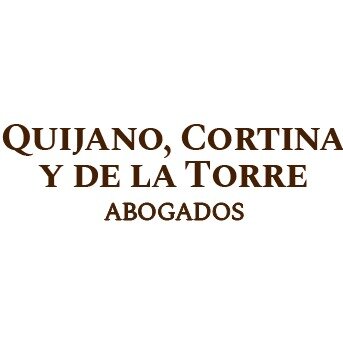Best Arrests & Searches Lawyers in Mexico
Share your needs with us, get contacted by law firms.
Free. Takes 2 min.
Or refine your search by selecting a city:
List of the best lawyers in Mexico
About Arrests & Searches Law in Mexico:
In Mexico, the law allows for arrests and searches under specific circumstances. It is important to understand your rights and the legal procedures that must be followed during an arrest or search.
Why You May Need a Lawyer:
You may need a lawyer if you are arrested or subjected to a search in Mexico to ensure that your rights are protected. A lawyer can help you understand your legal options, defend you in court, and navigate the complex legal system.
Local Laws Overview:
In Mexico, the law permits arrests to be made with a warrant issued by a judge or without a warrant if the person is caught in the act of committing a crime. Searches can also be conducted with a warrant or without one if there is probable cause. It is essential to know your rights and ensure that the authorities follow the proper procedures during an arrest or search.
Frequently Asked Questions:
1. When can the police arrest someone in Mexico?
In Mexico, the police can arrest someone with a warrant issued by a judge or without a warrant if the person is caught committing a crime.
2. Can the police search my property without a warrant?
In Mexico, the police can conduct a search without a warrant if there is probable cause to believe that evidence of a crime is present on the property.
3. What are my rights during an arrest in Mexico?
During an arrest in Mexico, you have the right to remain silent, the right to legal counsel, and the right to be informed of the charges against you.
4. Can I refuse to be searched by the police in Mexico?
In Mexico, you can refuse to be searched by the police without a warrant unless there is probable cause for the search.
5. How long can the police detain me in Mexico?
The police in Mexico can detain you for up to 48 hours without charging you with a crime. After that, they must either release you or bring formal charges.
6. What should I do if I am arrested in Mexico?
If you are arrested in Mexico, remain calm, assert your rights, ask for a lawyer, and refrain from making any statements until your lawyer is present.
7. How can a lawyer help me during an arrest in Mexico?
A lawyer can help you understand your legal rights, guide you through the arrest process, and defend you in court if necessary.
8. Can I be searched at a checkpoint in Mexico?
In Mexico, authorities can conduct searches at checkpoints without a warrant if there is probable cause or for public safety reasons.
9. What are the consequences of an illegal search in Mexico?
If a search is conducted illegally in Mexico, any evidence obtained may be deemed inadmissible in court, and the authorities responsible for the illegal search may face consequences.
10. Can I file a complaint against the police for an illegal arrest or search in Mexico?
Yes, you can file a complaint against the police for an illegal arrest or search in Mexico. It is important to document the incident and seek legal assistance to pursue the complaint.
Additional Resources:
If you need legal assistance regarding arrests and searches in Mexico, you can contact the Mexican Bar Association or seek help from legal aid organizations in your area. It is essential to consult with a qualified lawyer to protect your rights.
Next Steps:
If you require legal assistance in arrests and searches in Mexico, contact a trusted lawyer who specializes in criminal law. Make sure to provide all relevant information regarding your case and follow your lawyer's advice to navigate the legal process effectively.
Lawzana helps you find the best lawyers and law firms in Mexico through a curated and pre-screened list of qualified legal professionals. Our platform offers rankings and detailed profiles of attorneys and law firms, allowing you to compare based on practice areas, including Arrests & Searches, experience, and client feedback.
Each profile includes a description of the firm's areas of practice, client reviews, team members and partners, year of establishment, spoken languages, office locations, contact information, social media presence, and any published articles or resources. Most firms on our platform speak English and are experienced in both local and international legal matters.
Get a quote from top-rated law firms in Mexico — quickly, securely, and without unnecessary hassle.
Disclaimer:
The information provided on this page is for general informational purposes only and does not constitute legal advice. While we strive to ensure the accuracy and relevance of the content, legal information may change over time, and interpretations of the law can vary. You should always consult with a qualified legal professional for advice specific to your situation.
We disclaim all liability for actions taken or not taken based on the content of this page. If you believe any information is incorrect or outdated, please contact us, and we will review and update it where appropriate.
Browse arrests & searches law firms by city in Mexico
Refine your search by selecting a city.

















